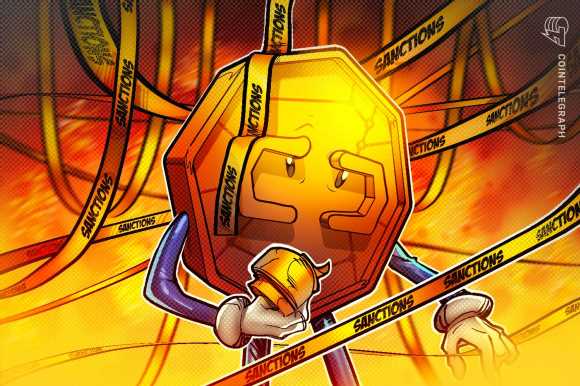Binance’s peer-to-peer (P2P) cryptocurrency exchange in Russia has continued facilitating transactions through sanctioned banks like Rosbank after denying relationships with “any banks.”
On Aug. 23, multiple local news sources reported that Binance P2P has renamed some of its troubled payment options for withdrawals and deposits, namely the sanctioned Russian banks like Tinkoff and Rosbank.
The P2P exchange replaced the banks’ names “Tinkoff” and “Rosbank” with terms like “Yellow” and “Green” cards, Cointelegraph has confirmed.
At the time of writing, Binance P2P offers customers the use of the “local cards” to sell cryptocurrencies like Tether (USDT) to Russian rubles and receive them on sanctioned Tinkoff or Rosbank.
The new naming apparently came shortly after The Wall Street Journal on Aug. 22 reported that Binance offered Russian clients at least five sanctioned Russian banks, including Rosbank and Tinkoff, as options for processing payments.
In the WSJ report, Binance executives denied any relationships with “any banks whatsoever, in Russia or elsewhere,” in relation to its P2P platform. “Binance follows the global sanctions rules and enforces sanctions on people, organizations, entities, and countries that have been blacklisted by the international community, denying such actors access to the Binance platform,” the company said.
The news came a few days after Binance services in Russia were promoted on a YouTube channel of a major Russian YouTuber, Yuri Dud. A recent video on his vDud YouTube channel — which has 10.3 million subscribers — featured an advertisement of Binance services, offering 5 USDT in exchange for signing up on the platform.
In the video, Dud also promoted Binance Earn, which allows users to earn passive income on crypto through a variety of products like flexible savings, locked savings, staking and liquidity mining.
It appears to be unclear how the latest news aligns with the Western sanctions against Russia. In February 2023, the European Council sanctioned Russian banks like Tinkoff and Rosbank as part of its 10th package of sanctions on Russia’s war against Ukraine. The United States also put sanctions on Tinkoff in May 2023.
Related: Binance limits withdrawals in Europe, cites payment processor issues
The news comes months after the U.S. Department of Justice security division reportedly launched an investigation of Binance for allowing Russians to use the exchange in violation of U.S. sanctions.
Binance has not been the sole cryptocurrency exchange that has been facilitating such transactions in Russia, though. Other major P2P crypto exchanges, including Huobi and OKX, also allow transfers with Tinkoff, Rosbank as well as Sberbank at the time of writing. Huobi and OKX didn’t immediately respond to Cointelegraph’s request to comment.
Binance’s representatives declined to comment to Cointelegraph on either its ads on Dud’s YouTube channel or its current services in Russia. “Our comments are already reflected within the WSJ report. We won’t be commenting any further on this topic at this time,” a spokesperson for Binance said.
The firm didn’t immediately respond to Cointelegraph’s request to comment on the issue of renaming the sanctioned banks to “Yellow” and “Green” cards.
Magazine: Big Questions: Did the NSA create Bitcoin?
Source: Read Full Article
-
Shiba Inu Bulls' Optimism For $0.001 SHIB Price Intensifies As Shibarium Sees Crazy Momentum
-
Ethereum NFT Q3 Performance Signals Doom As Trading Volume Dips
-
Elon Musk Says He'll Keep Supporting Dogecoin
-
Cardano's September Vasil Hard Fork FOMO Boosts Enthusiasm As $1 ADA Price Beckons
-
Prosecutors Claim Sam Bankman-Fried Tried To Influence Witness’ Testimony




